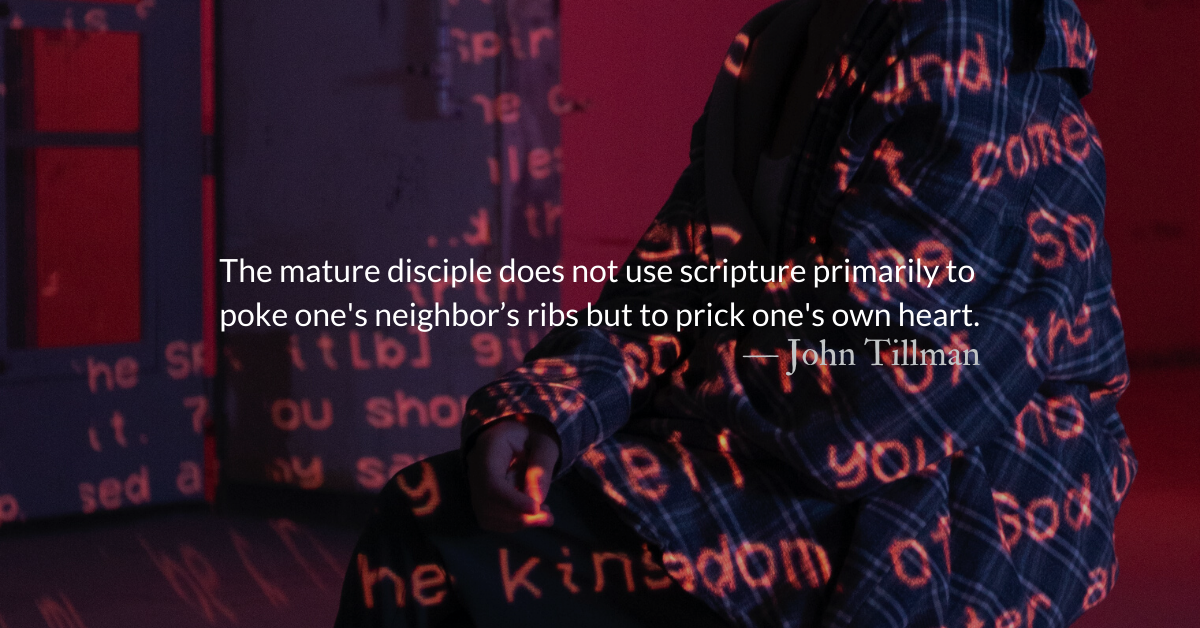Scripture Focus: Isaiah 28.15
You boast, “We have entered into a covenant with death,
with the realm of the dead we have made an agreement.
When an overwhelming scourge sweeps by,
it cannot touch us,
for we have made a lie our refuge
and falsehood our hiding place.”
Reflection: Puking Prophets of Success
By John Tillman
When judgment comes to those who think themselves strong and unassailable, there seem to be two kinds of prophets.
One kind is the prophets soaked in success, whose thirsts are slaked with the excesses of the culture. Isaiah greets these prophets, comparing them to drunks who continue to revel around a vomit-covered table, still sticky with the remnants of their previous parties. (Isaiah 28.7-8)
These prophets continue to predict that Israel and Judah will be great. They declare good times will return. They misread God’s intention to fulfill his will through the nation as God’s willingness to tolerate any sin among them.
They issue a challenge to Isaiah, (Isaiah 28.9-10) saying to him, “Don’t you know how wise we are? Don’t you see how successful we are? We are not children who need your childish teaching.”
Other prophets see through this spiritual pride and hubris. They are those, such as Isaiah, Jeremiah, and others, who call for repentance and understand that God can both bring disaster and save for himself a remnant through which to carry out his purposes.
The “puking prophets” of success are taking refuge in a lie. (Isaiah 28.15) They claim they do not need to be dictated to. They claim they should not be treated as children. But Isaiah knows that they will be soon treated worse. They will be enslaved and strictly dictated to, “do this, do that.”
The prophets of success often find great crowds and eager hearers. Paul warns Timothy of this principle in the New Testament (2 Timothy 4.3) and it is still with us today. We must learn a lesson from the fate of these popular, prideful, and puking prophets.
By hubris they are humiliated. By turning away they become blind. By not listening they become deaf. By not feeling they become insensate.
To be part of God’s remnant, we must be humble, coming “as little children” to Christ, begging to see and repent of our sins. We must be restrained, refusing to become drunk on the power and greed our culture gulps down.
We must open our eyes to see, open our ears to hear, and open our hearts to feel the uncomfortable, the painful, the hurtful truths of what is happening around us. In times of judgment, Christ’s remnant must work with his strength to ease, to comfort, and heal.
Divine Hours Prayer: The Refrain for the Morning Lessons
Gracious and upright is the Lord; therefore he teaches sinners in his way. — Psalm 25.7
– Divine Hours prayers from The Divine Hours: Prayers for Springtime by Phyllis Tickle
Today’s Readings
Isaiah 28 (Listen – 4:49)
2 John 1 (Listen – 1:50)
Read more about Sufferings and False Prophets
When prophets warn of disaster, people often reject the simple, life-saving courses of action they recommend in favor of idolatry, conspiracies, and lies.
Read more about Much Demanded
Much has been given to us. May we praise God in thankfulness for it, serve our neighbor in humbleness with it, and challenge every form of oppression with it.











